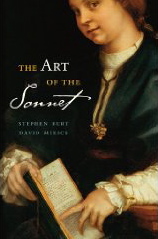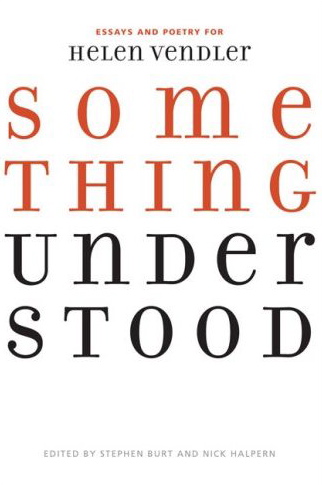We’re in DC with my family and while our children nap I’ve been reading this good anthology of “experimental”/ disjunctive UK women poets, edited by the US-to-UK transplant poet Carrie Etter, and also reading this very good anthology of UK and US poets invited to Oxford by Christopher Ricks. They are thesis and antithesis, or avant-garde and retro, or something. I’ll have more to say about the apparent opposition between them elsewhere soon, with any luck.
If you are stuck somewhere with no book, but with your iPhone, do check out the Poetry Foundation iPhone app: shake it and you get a random poem; shake it again if you don’t like the poem you get the first time. It’s like a Magic Eight Ball that is also a rather good poetry anthology; if I’m not careful it’s going to cause me (and not only me) to hold up all sorts of long queues checkout lines.
The latest online issue of Verse Wisconsin has a new poem by Lorine Niedecker. Turns out the parts aren’t new– but the assemblage is. Take a look.
I’m not sure how other reviewers do it, but I am discovering that having a baby, being home with the baby, and saying to yourself “Hey! I have a very limited time to read books, will have more time later, and need to cut down on reviewing for now in order to come back to it later, because otherwise I won’t read anything at all except books I’ve agred to review” turns out to be a pretty good way for me! Which also explains the relative paucity of posts to this here blog over the summer. (Hey, it’s summer. We’ve been at the beach. Once… with three more visits coming up.)
Right now I have just written something (it’s yet to appear) about Agha Shahid Ali and the ghazal in English. Ali, as you might already know, did quite a lot to popularize the “real” ghazal, with its array of formal requirements– monorhyme, refrain, a name in the last line, a constant length. Did you know, however, that the ghazal he prescribed was a form invented in Persia (and subsequently spread throughout the Islamic world, and beyond it), so that the older Arabic poems called ghazals do not have refrains? Did you know that the English-language go-to guy on the Urdu ghazal, and on Urdu poetry generally, for the second half of the twentieth century was also a committed British leftist who worked hard on the practical teaching of Urdu in the UK? Did you know that said go-to guy, Ralph Russell, died recently? I had had no idea.








